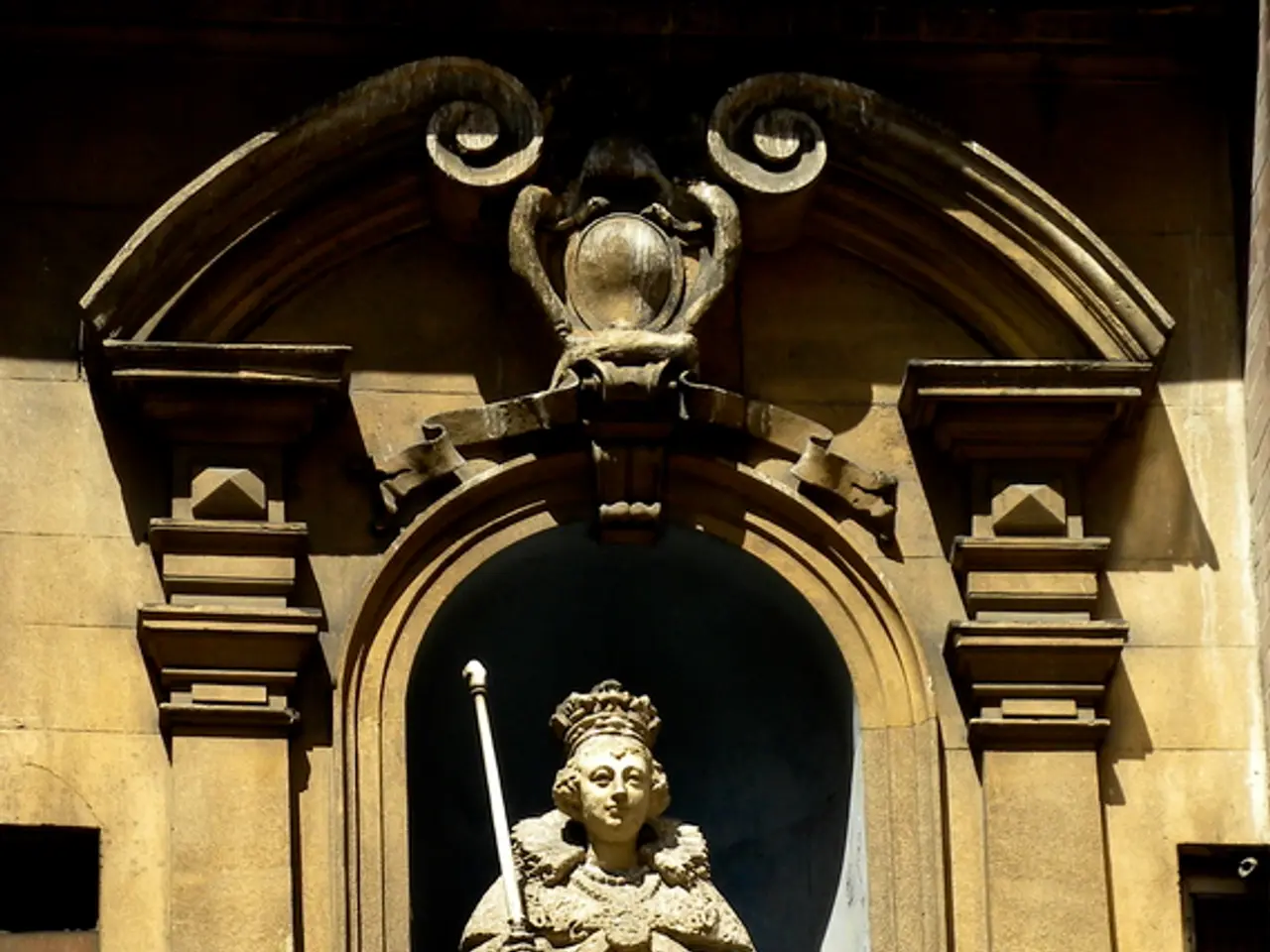Communist Party Head in Tyumen Addresses Sponsorship Allegations Regarding Kuchum Monument
Tamara Kazantseva, the leader of the Tyumen communists, is at the centre of a heated debate due to her alleged involvement in financing a contentious monument in Tyumen, Russia. The monument, which has sparked significant public debate and criticism, is said to be a tribute to local history or communist heritage, but its design, symbolism, and historical and political implications have raised eyebrows.
Kazantseva has denied any connection with the controversial monument, stating that the financial assistance provided was from the reserve fund of the Tyumen region government. She has also insisted that her involvement in supporting the organisation 'Heritage', which installed the monument, was legal. However, critics have questioned the source and transparency of the financing, suggesting that it might involve misuse of party funds or public money, or that it represents an attempt to promote a particular ideological narrative through expensive public displays.
The controversy began when Luiza Shamsuzdinova, the chairperson of 'Heritage', attempted to install a bronze monument on the territory of the 'Isker' memorial complex without coordinating with authorities. The statue was later seized. The link between Kazantseva and the controversy was based on a joint photo from the 'Isker-Zhien' festival in 2019.
Telegram channels suggested a link between Kazantseva and Faiza Bayramova, a nationalist activist from Tatarstan who was twice convicted for extremism. The basis for the link was the joint photo from the 'Isker-Zhien' festival. However, Kazantseva has clarified that she has no connection with Bayramova and that the location where Bayramova studied is not of interest to her.
Supporters of Kazantseva and the monument argue that the project is an important tribute to local history or communist heritage, and that the accusations are politically motivated attempts to discredit both her and the Tyumen communist faction. The issue has become a focal point for broader debates over local governance, historical memory, and political influence in the region.
Kazantseva, who lived and studied in Kazan during the Soviet era before returning to Tobolsk in 1971, previously denied any connection with Bayramova. The timeline of her living and studying in Kazan and returning to Tobolsk predates Bayramova's appearance during perestroika.
The controversy reflects wider tensions in Tyumen's political landscape, with conflicting views on the monument's meaning, the appropriateness of its funding, and Kazantseva's role in the project. Nikita Mikhalkov, a well-known Russian film director, accused the monument's authors of inciting interethnic hatred in his program 'Bessogon'.
As the controversy continues to unfold, Kazantseva and her supporters will need to address the concerns raised by critics and work to ensure transparency in the funding of such projects. Only then can the controversy be resolved, and the focus shift back to the important historical and cultural issues that the monument is intended to represent.
- The debate surrounding Tamara Kazantseva, the Tyumen communist leader, has expanded to include discussions about the funding of the controversial monument and her involvement with the organization 'Heritage', which is at the heart of general-news and politics.
- The controversy involving Kazantseva and the contentious monument in Tyumen has been linked to wider issues in the region's politics, including crime-and-justice concerns about the source and transparency of the project's financing, as well as allegations of ideological narratives being promoted through public displays.




